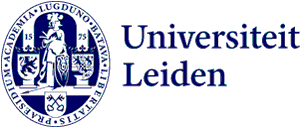Symposium and Workshops
LUCDH Digital Skills Winter Week 2024
- Date
- Monday 29 January 2024 - Friday 2 February 2024
- Address
- On Campus: Digital Lab P.J. Veth Digital Lab 1.07; Studio 1.06; Lecture Hall 1.01
- Room
- Digital Lab P.J. Veth 1.07
Digital Skills Workshops: 29 January – 2 February (10:00 - 13:00) in PJ Veth 1.06 & 1.07
Pilot Project Symposium 2024 29 January (14:00 - 17:00) in PJ Veth 1.01
Monday, 29 January: Harnessing AI for Education with Aron van de Pol & Ecolé
Location: Digital Lab PJ Veth 1.07
Attention faculty and staff: Ever wondered about the implications and applications of AI, particularly Large Language Models like ChatGPT, within the academic environment? Our Winter School Workshop is tailored just for you, bridging the realms of AI and the classroom, emphasizing it's potential role.
🚀 **"Back to the Future" of Education** 🚀
- **AI Demystified:** Get a clear, jargon-free understanding of AI and its transformative impact on the academic landscape.
- **AI Empowerment:** Learn how to leverage AI as a valuable tool, not just a buzzword.
🤖 **"The Good, The Bad, and The AI"** 🤖
- Delve into the challenges and opportunities of integrating AI in academic assessments, such as examinations and research papers.
- Engage in thoughtful discussions on how to manage AI's presence and ensure academic integrity.
📚 **"Teach Club": The First Rule is DO Talk About AI** 📚
- Insightful presentations by educators actively working with AI in their education.
- Hands-on strategies for seamlessly infusing AI into your curriculum.
- A collaborative platform to exchange experiences and ideas with fellow educators.
🎓 **Who Is This For?** 🎓
- Faculty members, especially from the humanities.
- Teaching assistants and academic support staff.
- Anyone within the university keen on the confluence of AI and pedagogy.
Step into the future of education and discover the synergy between AI and the humanities. This Winter School Workshop is more than a series of sessions; it's an invitation to reimagine the academic frontier.
Reserve your spot for this blockbuster learning fest this winter! 🎬🍿📘 Register with link below.
Tuesday, 30 January: Quarto Publishing with Dr. Yann Ryan
Location: Digital Lab PJ Veth 1.07
Quarto is an open-source publishing system which allows you to create and publish presentations, websites, LaTeX documents, and books. It can include dynamic content such as tables and visualisations from code notebooks, using a variety of languages such as R and Python. For academics, Quarto is particularly useful as a method for creating websites (for example a personal site or for taught courses) and to write articles with integrated reproducible code. In this course, we’ll go over the basics of setting up Quarto for use with R or Python, and you'll learn how to work with several Quarto output types, such as a Quarto book and a LaTeX document. Register with link below.
Wednesday, 31 January: Introduction to Podcasting with Dr. Angus Mol & Thomas Vorisek
Location: Digital Lab PJ Veth 1.07 and Studio PJ Veth 1.06
Are you an avid Podcast listener? Have you always wanted to create a podcast ...or a series of podcasts, but haven't explored the possibilities yet? This workshop is your first stop on that podcast journey with an easy introduction to recording with Audacity software and correctly setting up sound mixer and microphones. Overcome any nervousness you may have with talking into a mic and listening back to yourself - you'll have a chance in this workshop to practice. We'll also go through a number of useful tips to obtain a good sound recording, and best practices of how much to script, and making your podcast conversational and engaging listening to your intended audience.
There is a change to scheduling previously announced: We will now combine the two separate podcasting timeslots (10:00 - 11:20) and (11:40 - 13:00) into one grouping. The workshop will now start at 10:00 for everyone with a discussion on best-practice around podcasting (Digital Lab PJV 1.07), and then small groups will each have an opportunity to practice with the recording equipment in the Studio (PJV 1.06). Register with link below.
Thursday, 1 February: Introduction to QGIS with Matthew Sung & Dr. Jelena Prokic
Location: Digital Lab PJ Veth 1.07
Maps and GIS are an important part of digital humanities research methods, being used across a range of disciplines including history, literature, linguistics, religious studies. This workshop aims to introduce the basics of digital mapping using QGIS, an open-source mapping software. We will shortly discuss the foundational concepts of GIS (Geographical Information System), before delving into creation of digital maps. This workshop offers a hands-on experience for several different map types, including point maps (symbol maps, text maps, frequency maps) and area maps. We will demonstrate how digital mapping can be useful both as an exploratory research method and as an output of a research. The workshop is intended for beginners with no or little experience in digital mapping. Register with link below.
Friday, 2 February: How to Count Words Responsibly: An Introduction to Text Mining with Ruben Ros
Location: Digital Lab PJ Veth 1.07
This workshop goes back to the basics of computational text analysis: counting words. Methods based on word frequency are not only foundational for recent advances in AI, they are also highly effective tools to study culture and history. Simple frequency-based techniques are useful precisely when combined with small and complex humanities data. Yet counting words is hard. This workshop delves in to some well-tested techniques and shows how to apply them in your own research. We use methods such as diachronic frequency, collocation analysis, dispersion analysis and TF-IDF, to study changing culture over time and across individuals and groups. Register with link below.
